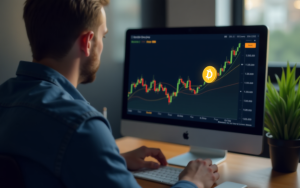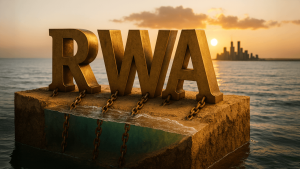G7, EU Finance Ministers Thwarting Russian Sanction Dodging With Crypto

Finance ministers from the European Union and the G7 (Group of Seven) said they were working to prevent Russia from using cryptocurrencies to avoid sanctions.
The details were discussed with central bank governors during virtual meetings together with Ukraine Finance Minister Serhiy Marchenko earlier this week, according to German Finance Minister Christian Lindner. Although unwilling to release any details, Lindner acknowledged that cryptocurrencies were a priority.
“The problem is known and we are working on it,” Lindner said in an interview with Welt TV. “It’s about maximally isolating Russia at all levels,” and applying the “maximum ability to sanction — and that also includes crypto assets.”
Last week, European Central Bank President Christine Lagarde urged the approval of EU crypto regulations which could help with the implementation of these sanctions. The legislation in the European parliament, known as Markets in Crypto Assets (MiCA), aims to establish a regulatory framework that could also facilitate the application of sanctions.
Calling on crypto exchanges
Sanctions have already been put in place limiting the capacity of Russian financial institutions, making the alternative of cryptocurrencies currently very appealing. Indeed, as Lindner points out, they would need to be properly addressed in order for sanctions to take their full effect.
For this reason, the Biden administration has requested that cryptocurrencies exchanges bar Russian users from their platforms. In addition to representatives from the Treasury Department and White House, Ukrainian Vice Prime Minister Mykhailo Fedorov also asked crypto exchanges not to serve Russians.
Many exchanges chose to comply with the request, and the world’s largest exchange Binance said that it would not serve those on the sanction list. However, while CEO Changpeng Zhao emphasized that Binance follows sanctions requirements very stringently, he said the exchange would not impose a blanket ban against all Russian citizens, saying that it would be “unethical.”
“Whoever is on the sanctions list, they won’t be able to use our platform; for whoever is not, they can,” Zhao said. “It’s not our decision to make to freeze user accounts.”
Disclaimer
All the information contained on our website is published in good faith and for general information purposes only. Any action the reader takes upon the information found on our website is strictly at their own risk.












